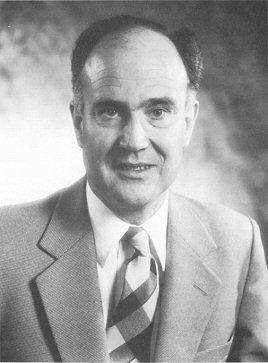Martin Beale facts for kids
Evelyn Martin Lansdowne Beale (born September 8, 1928, died December 23, 1985) was a very smart mathematician and statistician. He was one of the first people to work on something called mathematical programming. This is a way of using math to solve problems, especially in business and industry, to find the best possible solutions. He was also a FRS, which means he was a top scientist in the UK.
Contents
Martin Beale's Career
Early Life and Studies
Martin Beale went to Winchester College for school. Then, he studied mathematics at Trinity College, Cambridge, one of the most famous universities in the world. He graduated with top honors in 1949. In 1950, he got a special diploma in mathematical statistics.
Working with Math and Computers
After college, Martin Beale joined the Mathematics Group at the UK Admiralty Research Laboratory. This was a place where scientists worked on problems for the navy. He worked there for 11 years. For a short time in 1957 and 1958, he helped a research group at Princeton University in the United States.
In 1955, he made an important improvement to the Simplex Algorithm. This algorithm was created by George Dantzig. It helps find the best solutions for problems using math. Martin Beale made it even better for solving problems where you want to find the smallest possible value for a quadratic function.
Starting a Company and Teaching
In 1961, Martin Beale helped start a computer services company called C.E.I.R (UK). Later, a big company called BP bought it and changed its name to Scicon.
In 1967, he became a visiting professor at Imperial College in London. This meant he taught and did research there.
Important Roles and Awards
Martin Beale was a leader in many important groups. He was the chairman of the Mathematical Programming Society from 1974 to 1976. He was also the vice-president of the Royal Statistical Society from 1978 to 1980. He was a member of the British Computer Society and the International Statistical Institute.
In 1979, he was chosen as a Fellow of the Royal Society. This is a very high honor for scientists. He was recognized for using math and statistics to solve problems in industry. He also helped improve the theory of mathematical programming. In 1984, he was elected to the Council of the Royal Society.
He received the Silver Medal from the Operational Research Society in 1980. He also became the vice-president of the Institute of Mathematics and its Applications. He was also the non-executive chairman of Beale International Technology.
The Times newspaper said that he used his mix of theory and real-world practice to help many young mathematicians and computer scientists. They also said his many papers and his important book, Mathematical Programming in Practice, were very influential because they were clear and to the point.
His memoir for the FRS mentioned his "extraordinary skill" and his "substantial contributions to knowledge."
Remembering Martin Beale
Prizes and Events
- The Mathematical Programming Society gives out the "Beale–Orchard-Hays" Prize. This prize remembers Martin Beale and William Orchard-Hays.
- The Operational Research Society gives the Beale Medal. This award is for the most outstanding ongoing contributions to Operational Research.
- A special two-day meeting was held in his memory at the Royal Society in 1987.
- The book Questions of Truth is dedicated to him and Ruth Polkinghorne.
- He even appears briefly in a book called A Provincial Lady Goes Further by E.M. Delafield.
Martin Beale's Family
Martin Beale was the son of Muriel Rebecca Beale OBE. His mother came from a notable family. She was a descendant of General Sir John Slade. She was also the grandniece of Edmond Warre and the niece of Henry Adolphus Warre Slade. Her father, Marcus Warre Slade, was a Queen's Counsel. Martin Beale's first cousin was Madelaine Slade.
 | Kyle Baker |
 | Joseph Yoakum |
 | Laura Wheeler Waring |
 | Henry Ossawa Tanner |


